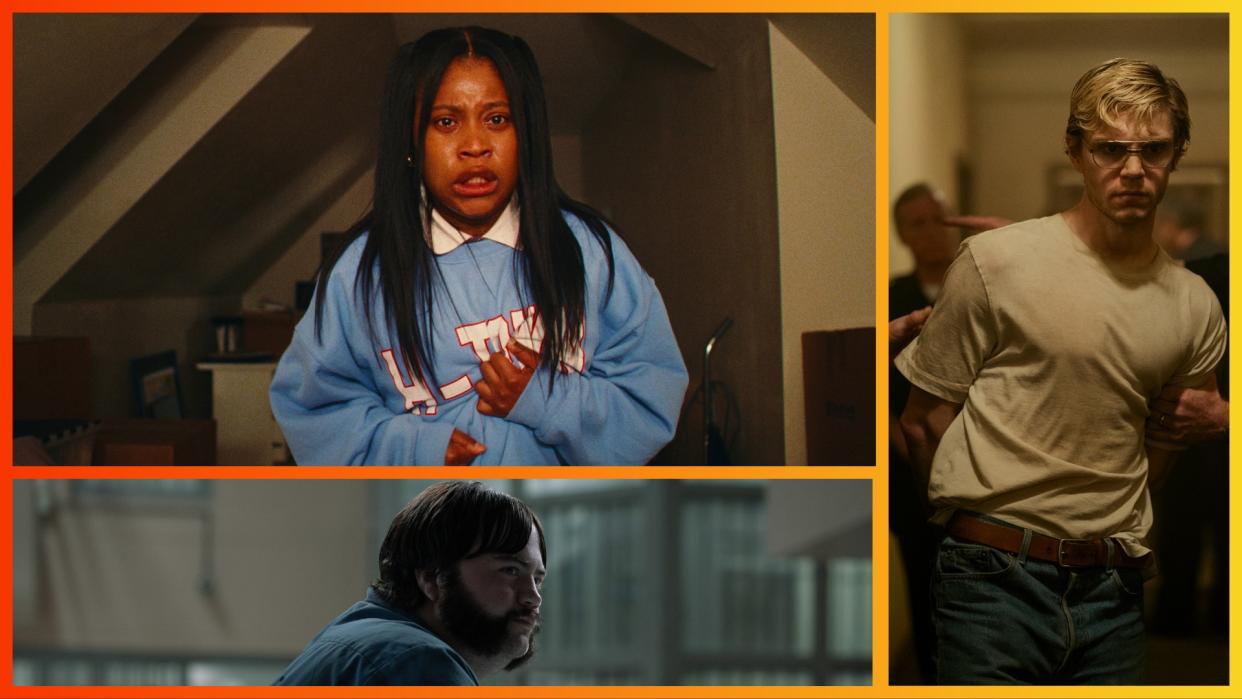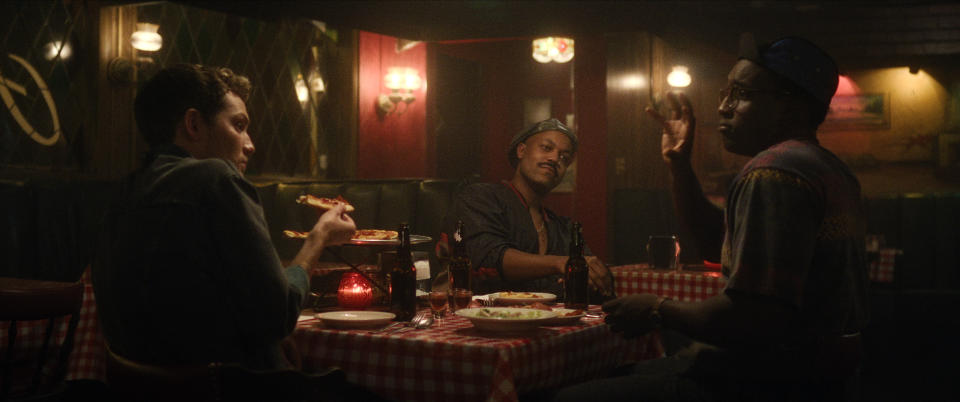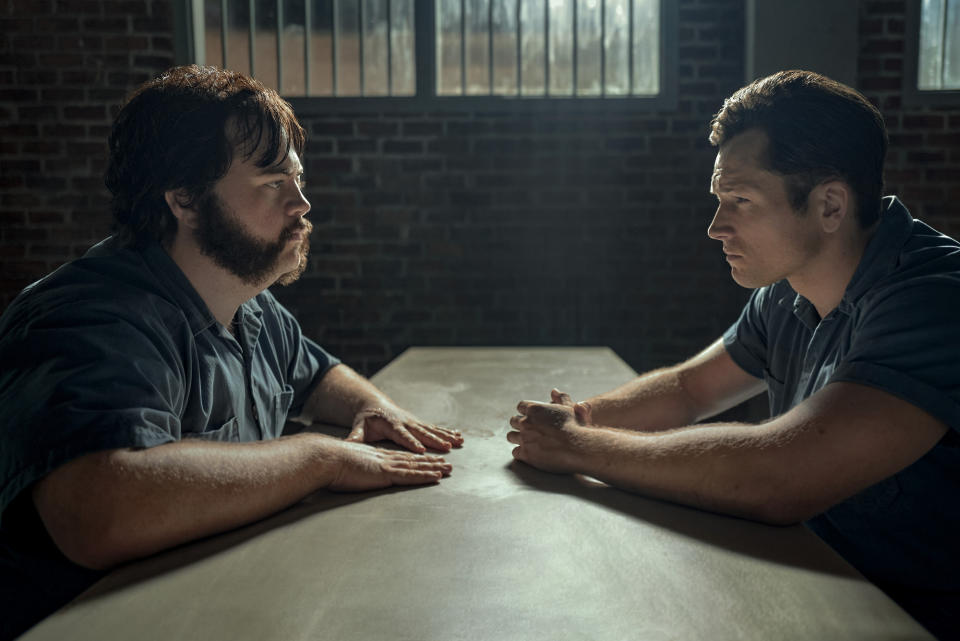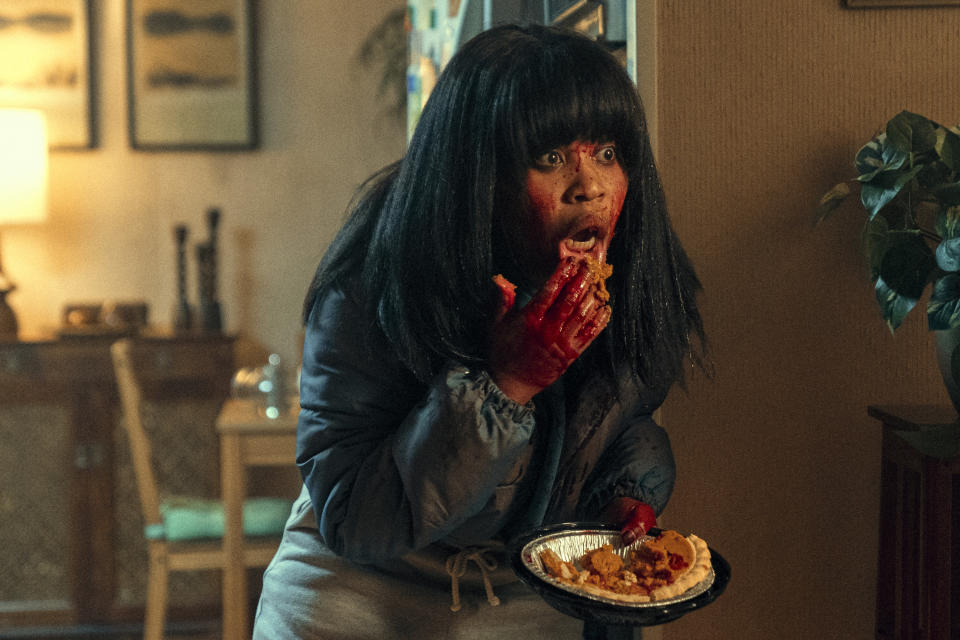Making a Murderer: Why TV Flocked Toward Serial Killer Stories

While it is easy to understand why audiences seek the thrills and chills of watching murderous characters on TV, it can be a bit harder to understand why creatives would put themselves through hell and back to deliver well-executed depravity that, at its best, morphs into something more poignant.
For Dominique Fishback, star of Prime Video’s “Swarm,” a pitch-black comedy about an obsessed music fan that leans into the “Killer” part of being a Killer Bee, the role of Dre was an opportunity to shirk expectations. “I was very used to playing characters who were considered lovable or likable or easier to put your arm around,” said the actress who, outside of her BAFTA Award-nominated supporting role in “Judas and the Black Messiah,” had been mostly cast as plucky teens. “I didn’t wanna get imprisoned by my own artistry or my own fears that I would disappoint anybody to do something that was considered ‘dark.’”
More from IndieWire
'The Diplomat': Keri Russell and Rufus Sewell on Building Their Relationship Through Sweat and Panic
2023 Emmy Predictions: Outstanding Documentary or Nonfiction Special
Fishback, who can also currently be seen in the “Transformers: Rise of the Beasts,” wanted her “Monster” moment (Charlize’s version). “The most fun part about acting is to really explore all the crevices of the human psyche, and I think that with characters that go to that shadow side, you get to really indulge yourself in a way that you would never in real life, hopefully,” she said to IndieWire.
Coincidentally, quite a few Emmy contenders can relate to taking on that challenge given how, just in the Limited Series categories alone, Evan Peters (“Monster: The Jeffrey Dahmer Story”), Elizabeth Olsen (“Love & Death”), Paul Walter Hauser (“Black Bird”), and Domhnall Gleeson (“The Patient”) all join Fishback as actors that are gaining tons of awards buzz for playing killers.
On paper, it can seem a bit morbid to push Emmy voters to watch such brutal content, but director Paris Barclay, who helmed two key episodes of “Monster: The Jeffrey Dahmer Story,” suggested that the killing sprees are just a jumping off point to get to less exhilarating, but more important subject matter. “I’m really not into the elevation of psychotic, sociopathic, demented people. Society is having enough problems of its own,” he said to IndieWire over Zoom. “But what I am into is elevating those people who tried to stop and fight against, and eventually fell victim to that person.”
That is exactly what Barclay got to do with the standout sixth episode “Silenced,” which has received praise from critics who even thought the record-breaking hit Netflix series about real-life serial killer Jeffrey Dahmer didn’t work for them overall. In it, viewers see the full life lived by protagonist Tony Hughes, a young, gay, deaf Black man who was murdered by Dahmer in 1991.

“I cannot think of any better use of my time,” the director said. “In the end product you see a much deeper representation of the deaf community, not just people who are deaf, but also the families that love them, which makes the whole episode for me, not only richer, but historic in a way because I haven’t seen that Black gay family. I haven’t seen that. I haven’t seen how they communicate, I haven’t seen their love. And to elevate that to this stage, and to have millions of people around the world see that, is something that I’m really proud of.”
Barclay commended writers David McMillan and Janet Mock for penning an episode that “turns the series from Jeffrey Dahmer to the people that he damaged, the people that he killed, and the impact that he had on society at the time”—an aspect of the show he feels was lost on critics who did not make it through the first half of the series, which focused more on the killer’s origin story.
When he stepped in to direct the innovative episode, Barclay took advantage of every technique at his disposal “to downplay Jeffrey Dahmer in favor of Tony Hughes,” he said. “I know a lot about what the camera can do. I know a lot about what music and silence can do, and where you place the camera is so important. [Tony] was always a little bit lower and a little bit tighter than Jeffrey. Those are just little subtle things that people don’t notice, but that we do as directors, to build up the heroic aspect of it.”
Similarly, “Black Bird” came with a lot of complexities that required the skillful pen of creator/showrunner Dennis Lehane to nail. The Apple TV+ crime drama is adapted from James Keene’s 2010 book “In with the Devil” about his bargain with the FBI to elicit a confession out of suspected serial killer Larry Hall in order to get his 10-year prison sentence commuted. Lehane previously told IndieWire that when he conceived of the show, he asked “How do you find common ground with a serial killer? Where does it intersect?” The answer he landed on in Keene’s case was objectification.

“Everybody objectifies. I don’t care who you are. Everybody objectifies. I know the human being. It’s what we do. [But] it seems that only men weaponize it,” the screenwriter and author said. “I don’t sympathize with Larry. He’s never been convicted, but he potentially killed 20 to 40 women, so I don’t sympathize with him. But at the same time, I empathize with the abject loneliness that exists in that person.”
Fishback was just as painstaking in her approach toward playing Dre. The only real background “Swarm” creators Donald Glover and Janine Nabers had given her was that her character was emotionally stunted, so the rest really fell on her to flesh out. “Everything I’m learning in my life, a role comes and just enhances that. So I had been learning about the idea of repressed memories and how something could be so traumatic that you don’t remember that it happened at all. And so I thought, ‘OK, maybe I don’t need to know her backstory,’” the actress said. “Dre’s life has been so traumatic that she may have suppressed it for herself, and suppressed it so far that even I can’t access it, but it’s not necessarily important.”
Fishback cites Joseph Hacker’s book “Auditioning on Camera” as a resource that helped her understand her roles, and that no matter what, her character is going to be the way she is no matter how Fishback plays her because she was written that way. “Dre is a serial killer because that’s the given circumstances, so I don’t have to riddle her with things that are serial killer-esque, whatever that might be,” she said. “I can actually just be grounded and present and allow the script, my instincts, and my scene partners influence how I respond.”
Contrary to her peers, most of whom walked the well-trodden territory of characters familiar to true crime fans, Fishback also had to factor in representation. After all, one would be hard-pressed to name a Black female serial killer off the top of their heads. “I took it very seriously. So even though these are the given circumstances, she is going to be a serial killer, how can it make it something that we’re proud of as a Black audience, to say, ‘Dang, I wanna do something like that,’” the actress said.
“I’m thankful that I got to just bring whatever innately I had for the character and have real ownership over who Dre is,” Fishback said. “I was so specific about the nuances of Dre that some people are like, ‘Oh, did she do that on purpose?’ And 98% of the time it was done on purpose. It was done very particularly and very intentionally, so [it’s nice] to see that people are picking up on those things because I really cared and I really gave everything that I had for it.”

But it should be noted that she did not try to become Dre. “I’m definitely not a method actor,” said Fishback. While similar performances like Joaquin Phoenix in “Joker” came with stories of the star severely slimming down for the part, and losing all self-control, Fishback worked hard to protect her well-being. Being granted her request to be a producer on “Swarm,” Fishback was the one to negotiate bringing in a therapist for the days they shot kill scenes.
While there were reports that Peters took a method approach to play Dahmer, Barclay provided a needed clarification. “He was extremely caring with Rodney [Burford] (who plays Tony Hughes), and when he interacted with the other actors, knowing that Rodney had considerably less experience and obviously doesn’t have an Emmy, Evan really took care of him and really helped him through just the basic things,” the director said. “You can’t be fully in your head all the time and still show that degree of caring.”
Despite all the challenges, playing the deadly Dre was a fulfilling experience for Fishback. “The fact that I get to tap into such a rage for a character was very healing, I feel like I came out lighter on the other side of it,” the Outstanding Lead Actress in a Limited Series contender said.
That said, she doesn’t have a lot of interest in playing another Black female killer any time soon. “I wanna do a classic timeless romcom like ‘When Harry met Sally,’ that’s what I wanna do. I wanna do an epic romance like ‘The Notebook” or ‘Titanic.’ I wanna do something fantastical like ‘Harry Potter’ or ‘Children of Blood and Bone,’” Fishback said. “[‘Swarm’] inspired me to keep going and know that there are people out there making original work that get you excited.”
Best of IndieWire
2023 Emmy Predictions: Outstanding Documentary or Nonfiction Special
2023 Emmy Predictions: Outstanding Documentary or Nonfiction Series
Sign up for Indiewire's Newsletter. For the latest news, follow us on Facebook, Twitter, and Instagram.

 Yahoo News
Yahoo News 

